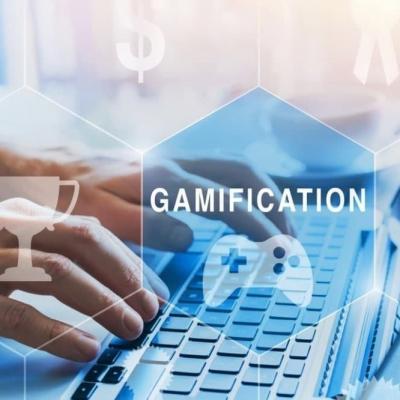When we look at it, we witness that most kids are playing or having discussions with each other, leaving mukkasi for games like Minecraft, PUBG MOBILE, Brawl Stars, Roblox. But have we ever thought about how these games affect the psyche of our children, the level of knowledge, the worldview of young? Are there any useful or harmful types of games? How true is it actually for kids to play games? Maybe through these games our children will gain some level of knowledge?!
Today, smartphone and computer games serve as not only an entertainment tool for users, but also as an educational environment in a new way. The traditional form of education of the present era does not always take into account the demand and needs of the generation, which needs new ways of obtaining knowledge. This spurred the development of further online education. Especially in the aftermath of the pandemic observed in the world, this situation has become more intense.
However, the main disadvantage of online learning is the rapid loss of students ' interest in classes by being distracted by external factors. So, is there any method that increases the interest of students, facilitates the work of teachers and approaches the educational system in a new direction?
In solving this problem, the mechanics of games recommended by psychologists will help prevent a new generation of students from getting bored quickly during lesson processes and increase the focus on the lesson in the student. Game mechanics have been used in business since the early 20th century. And the term" Gamefication " (next - gamification) appeared in the 80s of the last century.
Gamification is the involvement of students/participants in a game-assisted reading/work process in an unconventional way. Properly structured gamification increases the motivation of the user as well as the desire to join the educational system.
This method was originally used in marketing and sales. But later technology expanded into other types of activities. For example, a clear example of the entry of geymification into the educational system is in the game "LinguaLeo", where users learn English by feeding the child of a virtual lion. The more the player moves, the happier the lion's child will be and gain strength. As a result, the user becomes more successful in mastering the English language. There are now many gamification-based platforms like this (MinecraftEDU, Duolingo, ClassDojo, etc.
Why do people develop dependence on play? It depends on the psyche, strategy and worldview of each player. Professor Richard Bartle of the University of Esseksa classifies game enthusiasts into 4 main categories – "leaders", "achievers", "researchers" and "revelers". Players in 4 different categories play one game and get 4 different pleasures.
It is worth noting that one of the most important stages is determining the group of users as well as the category in which the players are intended. Who plays this game? What motivates players? What makes them angry? it is important to answer questions such as first. The more detailed the analysis, the stronger the foundation of the future gamification. A superficial look at the audience is nothing to eliminate all actions.
The role of gamification in future education
Game mechanics in education is a far – fetched tendency. On the one hand, gamification has already had time to prove its effectiveness in education, and on the other hand, it is a mistake to look at gamification as a solution to all problems in education.
Geymification also helps to bring online and offline modes closer together: ClassDojo and Kahoot are clear examples of this. In the future, gamification can also become an effective tool. ClassDojo is a service for the teacher that instantly gives the student the opportunity to express an opinion in the form of a game. Each student is a specific "monster"that the teacher can reward. ClassDojo also serves as a monitoring system for parents. The platform is used by 40 million teachers in 180 countries. Kahoot, on the other hand, is a gamified test creation service, in the same course process, the teacher presents several questions on the screen with answer options, with their own devices, students give the correct answer option to questions and score points. The platform is currently used by 3.5 million teachers.
It is no secret that in recent years the main emphasis in the program for the development of education in our Republic has been placed on digitization and precisely on the IT sphere. Therefore, in the Ministry of preschool and school education of the Republic of Uzbekistan, the demand for innovative approach to education and the implementation of education on the basis of modern technologies is increasing day by day.
As such, it is envisaged to improve the Edu Market platform within the ministry's major projects aimed at promoting education through geymfication. Edu Market-as an educational platform-differs from other analogues in that the games on the platform consist mainly of educational materials of the school education system of the Republic of Uzbekistan. The Ministry of preschool and school education of the Republic of Uzbekistan continues to work on the project and plans to launch a platform for upperclassmen soon.
When learning game methods, the student persistently wants to study and is sometimes ready to concentrate for more than an hour, unfortunately, we know the attitude of most children to traditional education. So why not help users balance learning with pleasure, making it mandatory to master knowledge using the game?
Any unconventional knowledge is significant in that it is aimed at the formation of a creative taffacur in the age of globalization of students, understanding the essence of phenomena and conducting critical observation. After all, nonconformity in the approach to education is a guarantee that both social and economic life will change for the better.
Sevara Iskhakova,
Innovation, technology and Strategy Center expert
source: Xabar.uz


